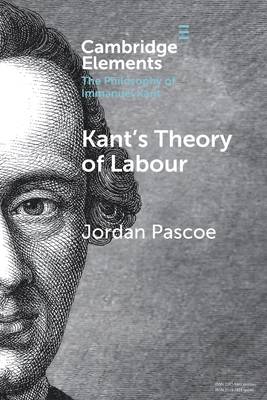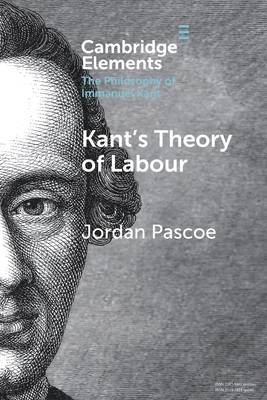
- Afhalen na 1 uur in een winkel met voorraad
- Gratis thuislevering in België vanaf € 30
- Ruim aanbod met 7 miljoen producten
- Afhalen na 1 uur in een winkel met voorraad
- Gratis thuislevering in België vanaf € 30
- Ruim aanbod met 7 miljoen producten
Zoeken
Omschrijving
This Element examines Kant's innovative account of labour in his political philosophy and develops an intersectional analysis of Kant. By demonstrating that Kant's analysis of slavery, citizenship, and sex developed in inter-linked ways over several decades, culminating in his development of a 'trichotomy' of Right, the author shows that Kant's normative account of independence is configured through his theory of labour, and is continuous with his anthropological accounts of race and gender, providing a systemic justification for the dependency of women and non-whites embedded in his philosophy of right. By examining Kant's arguments about slavery as intertwined with his account of domestic labour, the author argues that his ultimate rejection of slavery may owe more to his changing conceptualization of labour than to his theory of race, and that his final arguments against slavery rehearse strategies for embedding intersectional patterns of domestic dependence in his account of the rightful state.
Specificaties
Betrokkenen
- Auteur(s):
- Uitgeverij:
Inhoud
- Aantal bladzijden:
- 75
- Taal:
- Engels
- Reeks:
Eigenschappen
- Productcode (EAN):
- 9781009165747
- Verschijningsdatum:
- 22/09/2022
- Uitvoering:
- Paperback
- Formaat:
- Trade paperback (VS)
- Afmetingen:
- 152 mm x 229 mm
- Gewicht:
- 113 g

Alleen bij Standaard Boekhandel
+ 63 punten op je klantenkaart van Standaard Boekhandel
Beoordelingen
We publiceren alleen reviews die voldoen aan de voorwaarden voor reviews. Bekijk onze voorwaarden voor reviews.











